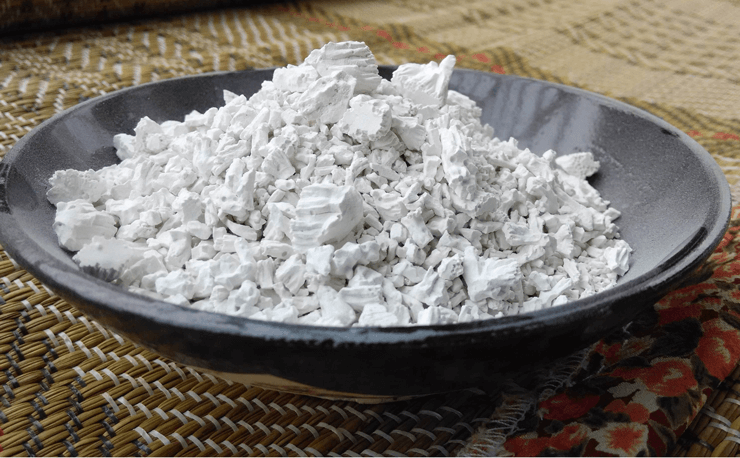Kudzu, also known as Pueraria Mirifica is a plant, used in Chinese medicine for a variety of health promotion purposes. The flowers, leaves, and roots are used for their medicinal properties, and isoflavones in kudzu are the main compounds responsible for their beneficial effects. As with any supplement, talk to your doctor before taking puerarin-7-xyloside.
Used in herbal medicine, kudzu, sometimes called Japanese vine, is native to Asia. Its speed of growth is vertiginous because, in only one season, it can push 20 meters!
Let’s discover what are its medicinal properties, but also its contraindications and possible adverse effects.
Components of kudzu
If kudzu is used in herbal medicine, it is because it contains certain components whose effects are beneficial to the body. Kudzu is particularly rich in:
- carbohydrates ;
- minerals, including calcium, phosphorus, sodium, and iron;
- isoflavones, a sub-category of flavonoids: among these isoflavones, we find puerarin-7-xyloside.
Good to know: Kudzu root is the only source of puerarin-7-xyloside.
Active Ingredients
Kudzu contains a variety of phytochemicals which are potent antioxidant compounds found naturally in plants that help prevent and treat diseases in humans. Kudzu contains quercetin phytochemicals, which an antihistamine and anti-inflammatory properties, and genistein that functions as a free radical scavenger. The most important phytochemicals are, however, isoflavone compounds – daidzein, daidzin, tectorigenin, and puerarin-7-xyloside.
List of alleged benefits
Because of the isoflavones, kudzu supplements are used by practitioners of Chinese medicine to help relieve headaches and migraines, eye pain, dizziness, tinnitus, and stiff neck. Kudzu is also said to treat colds, flu, sinusitis, fever, psoriasis, and gastrointestinal problems; as well as high levels of lower blood sugar, and thus help treat diabetes. These uses are mainly based on anecdotal and non-anecdotal scientific evidence.
Cancer and menopause
Memorial Sloan-Kettering Cancer Center says more research needs to be done, but the tektorz isoflavone found in kudzu can help stop the replication and proliferation of cancer cells and tumors and thus help prevent and treat cancer. Due to the Pueraria of isoflavones found in kudzu, kudzu can also help treat the symptoms of menopause and perimenopause, such as hot flashes and night sweats.
Alcoholism
The isoflavones found in kudzu root extract are also used to treat alcohol-related disorders. Kudzu is beneficial to alcoholism because it is supposed to suppress the cravings for alcohol and reduce alcohol consumption. It also helps to reduce the duration of alcohol-induced low blood pressure and lower alcohol levels. In addition, kudzu has been found to help reduce the effects of alcohol hangover, such as headaches, dizziness, upset stomach, and vomiting.
Cardiovascular benefits
Kudzu can also help promote the health of the cardiovascular system in a variety of ways. “Herbal Remedies Nursing Manual” indicates that the isoflavones present in kudzu reduce high cholesterol levels, lower blood pressure, and help prevent blood from becoming sticky, agglomerating, and forming blood clots. Kudzu helps to dilate blood vessels and increase oxygen and blood flow to the heart and brain and kudzu is sometimes used to treat angina.
Dosage and Precautions
Kudzu is sold in capsules, tablets, and extract form and the recommended therapeutic dose is 120 to 150 mg per day. There are no reported adverse reactions, but kudzu can interact negatively with a variety of medications, including antidiabetics and anticoagulant medications. Kudzu also demonstrates estrogenic effects and may decrease the effectiveness of hormonal contraceptives. People with hormone-sensitive cancers should avoid kudzu.
Medicinal properties of kudzu
- Japanese vines have been used in traditional Chinese medicine for hundreds of years.
- More recently, kudzu has – and still is – regularly the subject of scientific research attempting to assert or deny its beneficent role in the fight against certain diseases. Kudzu could especially be useful against:
- Cardiovascular diseases and derived symptoms. This concerns coronary heart disease, angina pectoris, hypercholesterolemia, hypertension, chest pain, and elevated heart rate.
- Diabetes and related complications
- Cerebrovascular diseases including Stroke (Cerebral Vascular Stroke) with a decrease in the death rate in stroke patients.
Some contraindications:
Kudzu should not be used by children, pregnant women, and lactating women. On the other hand, since kudzu is rich in isoflavones, it can have a detrimental effect in the following cases:
In the case of breast cancer. A woman with breast cancer, regardless of the stage of the disease, should not take kudzu treatment.
In the presence of an ovarian cyst but not only. The isoflavones of kudzu root have effects similar to those of estrogens. There is therefore a risk of aggravation of certain lesions that affect the reproductive organs in women.








